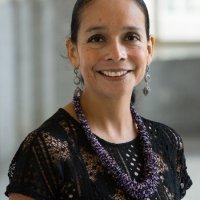Arguments to Reform Mexico’s Anti-Trafficking Legislation





In the past few years, Mexico has taken a number of steps to prevent and prosecute trafficking in persons, and to protect its victims. The country’s government has signed international anti-trafficking conventions and taken some aspects of widely-accepted international definitions of this crime into account when drafting its anti-trafficking legislation. However, Mexico’s current legislation is based on a broad definition of trafficking in persons that is inconsistent with international norms which, in turn, has led to misidentification of traffickers and victims, as well as their re-victimization. Mexico’s weak rule of law and corrupt institution compound the issue. The present analysis demonstrates the imperative to modify the current anti-trafficking legislation in Mexico and provides some suggestions for this much-needed reform.


The Mexico Institute seeks to improve understanding, communication, and cooperation between Mexico and the United States by promoting original research, encouraging public discussion, and proposing policy options for enhancing the bilateral relationship. A binational Advisory Board, chaired by Luis Téllez and Earl Anthony Wayne, oversees the work of the Mexico Institute. Read more


The Wilson Center’s prestigious Latin America Program provides non-partisan expertise to a broad community of decision makers in the United States and Latin America on critical policy issues facing the Hemisphere. The Program provides insightful and actionable research for policymakers, private sector leaders, journalists, and public intellectuals in the United States and Latin America. To bridge the gap between scholarship and policy action, it fosters new inquiry, sponsors high-level public and private meetings among multiple stakeholders, and explores policy options to improve outcomes for citizens throughout the Americas. Drawing on the Wilson Center’s strength as the nation’s key non-partisan policy forum, the Program serves as a trusted source of analysis and a vital point of contact between the worlds of scholarship and action. Read more
